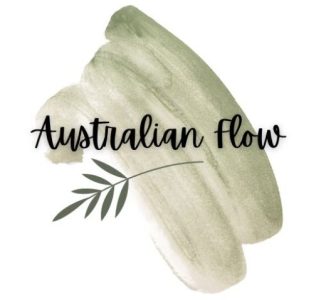One wheel you don’t want to cheap out on when it comes to your caravan is the jockey wheel. Although smaller than the rest of the wheels on your mobile home, a jockey wheel is an equally important one. Why? That’s because of its purpose which is to help you move your camper trailer once decoupled from your vehicle.
They come with a height-adjustable telescopic stem which has a swivel wheel attached on one end. Essentially a jockey wheel is what helps you guide your trailer much easier than you would without one as it also helps absorb bumps. But like caravans, jockey wheels are available in different variations.
Types of Caravan Jockey Wheels

Standard
The most common caravan jockey wheel you’ll come across is known as a standard jockey wheel. That’s mainly because of its setup which consists of solid tyres and a standard clamp which you can have bolter or welded to your caravan’s A-frame. A standard camper jockey wheel is ideal for simple movements on level ground.
Swivel
If you want a little bit more manoeuvrability you should consider getting a swivel jockey wheel. This is a more versatile solution that allows you to keep the wheel on the A-frame all the time instead of having to re-attach it every time you need to use it. Since the wheel also turns 360° it makes it a lot easier to move your caravan to wherever you want and not have to worry about storing the wheel anywhere at the same time.
Ratchet
When you need to move larger caravans you are better off using a ratchet jockey wheel. With it you can manoeuvre much heavier caravans with ease no matter if it’s on even or uneven ground. Thanks to their ratchet and lever system some of these jockey wheels for a caravan can take on up to 900kg of weight.
Serrated
If you park your caravan mostly on wet ground or grassy areas, then you should definitely take a look at a serrated jockey wheel. Serrated jockey wheels are made to provide better traction which makes them especially useful on slippery surfaces. Even if you want to keep your caravan on a soft patch of land you can still rely on a serrated jockey wheel to do the job.
Screw-Type
Instead of using a winding handle, a screw-type jockey wheel has, as you’d expect, a screw mechanism. Screw-type jockey wheels are much like ratchet jockey wheels in that they’re also able to handle heavy caravans. But what makes screw-type jockey wheels stand out is that they’re more precise when it comes to height adjustment.
Off-Road
You may not strictly go off-roading with your caravan but when you do come across a beaten path or the need to park in some challenging conditions, you should go for an off-road jockey wheel. The reasons are simple, an off-road swivel caravan jockey wheel comes with two wheels instead of one and thus provides more grip. There are also more height adjustment options in both plate and yoke. Also, with the presence of a side winding handle, you get access to your toolbox holder even if it’s positioned quite close to the drawbar.
Twin Jockey
Although twin jockey wheels may have the same number of wheels as off-road wheels they are still quite a bit different. The wheels are typically separated from each other further than on an off-road camper jockey wheel and they also allow for smoother pivoting. Twin jockey wheels are generally made for heavy-duty use on rough terrain.
Motorised
A motorised jockey wheel makes for the most convenient solution you’ll come across as it allows you to move your caravan. They actually come as motorised systems that can be attached to any jockey wheel so that you can move your caravan with the use of a remote. Motorised jockey wheels for a caravan are also suitable for heavy caravans.
What Matters in a Jockey Wheel

Load Rating
The load rating of a jockey wheel should be high enough to support more than the total weight of the caravan. This includes its actual weight and the amount of weight it can carry. The load rating of a caravan jockey wheel should be 20% more than the total weight of the caravan.
Sleeve
For compatibility reasons you should measure the vertical metal tube on tour caravan or what is known as the outer sleeve in order to get the right jockey wheel. The smallest jockey wheel sleeve you’ll find comes in at 34mm which means it can accommodate the most lightweight jockey wheels. The larger outer sleeve ranges between 60mm and 63mm and it’s typically found on heavy caravans.
Solid vs Pneumatic
The actual wheel of a jockey wheel can be either solid or pneumatic. Solid wheels are made either of nylon or rubber and they are better suited for tougher surfaces such as tightly packed soil and concrete. Pneumatic wheels are air-filled and therefore better on sandy beaches and muddy terrain.
